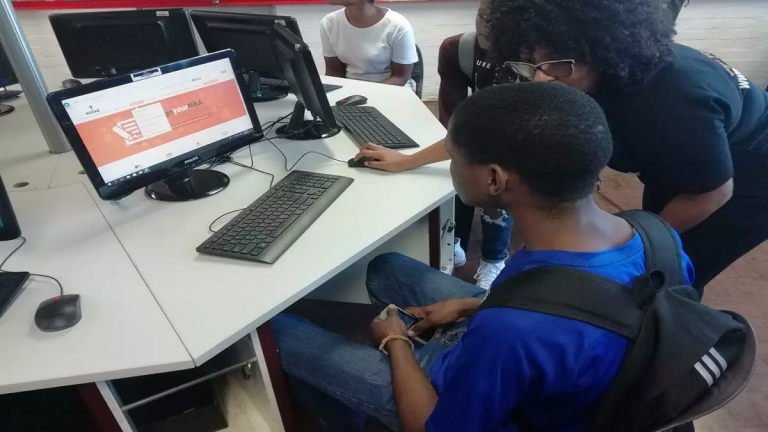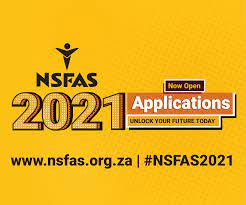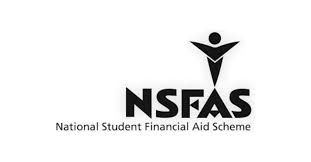NSFAS Funding Application South Africa 2026 – A Detailed Guide
The National Student Financial Aid Scheme (NSFAS) is a vital government initiative designed to assist South African students who are financially disadvantaged and wish to pursue higher education at public universities and Technical and Vocational Education and Training (TVET) colleges. Each year, thousands of students rely on NSFAS funding to cover their tuition fees, accommodation, transport, and other essential study expenses.
For the 2026 academic year, NSFAS will continue to provide financial assistance to eligible students, ensuring that higher education remains accessible to all, regardless of their economic background. In this article, we’ll walk you through the entire process of applying for NSFAS funding, from eligibility and documentation requirements to how you can track your application status.
What is NSFAS?
The National Student Financial Aid Scheme (NSFAS) is a government-funded program that provides financial support to students who wish to study at South African public universities and TVET colleges. The funding covers various expenses, such as:
- Tuition fees (registration, course fees, exam fees)
- Accommodation costs
- Transport allowances
- Meals and personal allowances
- Study materials (textbooks, equipment, etc.)
NSFAS is aimed at students from families with an annual income of R350,000 or less, and its funding package is available for both undergraduate and post-graduate programs at eligible institutions.
Who Qualifies for NSFAS Funding in 2026?
Before applying for NSFAS funding, it is important to ensure that you meet the basic eligibility criteria. The general requirements for NSFAS funding are:
- South African Citizenship: You must be a South African citizen.
- Financial Need: NSFAS is aimed at students from households with a combined annual income of R350,000 or less. The scheme is designed to assist low to middle-income families.
- Admission to a Public Institution: You must be accepted at a public university or TVET college in South Africa. Proof of admission or registration will be required.
- Undergraduate or Postgraduate Studies: While NSFAS primarily supports undergraduate students, there are also provisions for some postgraduate programs, especially those that align with the national priority skills areas.
- Eligibility Verification: The NSFAS application process involves verifying your financial status and academic background. Be ready to provide documentation supporting your claim.
How to Apply for NSFAS Funding in 2026
Applying for NSFAS funding for 2026 is a straightforward process, but it requires careful attention to detail and timely submission of documents. Here’s how you can apply:
Step 1: Prepare Your Documents
Before you begin the online application, gather all the necessary documents to avoid any delays. Here’s what you will need:
- Valid South African ID or Birth Certificate (for applicants under 18 years old)
- Proof of parental income (e.g., payslips, tax returns, or affidavits if unemployed)
- Proof of residence (a utility bill or affidavit stating your home address)
- Bank account details (for NSFAS disbursements)
- Matric certificate or Grade 11 results (for first-time applicants) or latest academic transcript (for returning students)
- Proof of disability (if applicable, for students with disabilities)
Step 2: Create a MyNSFAS Account
- Visit the official NSFAS website
- On the homepage, click on the “MyNSFAS” button to access the application portal.
- Create a new account by entering your personal details, such as your South African ID number, full name, email address, and contact number.
- Once your account is created, you’ll receive a verification email or SMS. Follow the instructions to confirm your registration.
Step 3: Fill Out the NSFAS Application Form
- Once logged in, navigate to the NSFAS Application page within the portal.
- Carefully fill out the application form, providing accurate information about your personal details, family income, academic background, and institution choice.
- Upload the necessary supporting documents, such as your proof of income and proof of admission.
- Review your application for any errors or missing information before submitting.
Step 4: Submit Your Application
Once your form is complete and documents are uploaded, click submit. You will receive an application reference number, which you should keep for future reference. This number allows you to track your application status.
Step 5: Monitor Your Application Status
After submitting your application, you can track your NSFAS application status through the MyNSFAS portal. Regularly check your email and SMS for updates, especially if NSFAS requires additional information or documentation.
NSFAS Application Deadlines for 2026
For 2026, NSFAS applications typically open in September 2024 and close in November 2024. However, these dates can vary, so it’s important to check the NSFAS website or your institution’s financial aid office for any updates.
Make sure to submit your application well before the deadline to avoid last-minute complications.
NSFAS Funding: What Does It Cover?
NSFAS provides a comprehensive funding package to eligible students. The funding covers various categories of costs:
- Tuition Fees: NSFAS covers the cost of your university or TVET college tuition, including course fees and exams. The exact amount will depend on your institution and course of study.
- Accommodation: Depending on whether you live on or off-campus, NSFAS will cover accommodation costs up to a certain amount. Students living off-campus may need to submit proof of accommodation.
- Meal Allowance: NSFAS also provides funding for meals to ensure that you have enough to eat while studying. This allowance is part of the overall student support package.
- Study Materials: This includes money for textbooks, laptops, and other materials that will support your academic journey.
- Transport: Students who live off-campus or in rural areas may receive transport allowances to cover the cost of getting to and from the university.
- Personal Allowances: Depending on your circumstances, NSFAS may provide additional personal allowances for living costs.
How to Track Your NSFAS Application Status
After submitting your NSFAS application, it’s crucial to stay informed about the status of your application. Here’s how you can check it:
Step 1: Log in to MyNSFAS Portal
- Visit the MyNSFAS portal and log in with your username and password.
Step 2: Track Your Application
- Once logged in, navigate to the “Track Application” section to see your current application status.
- If NSFAS requires additional documents or if there’s a delay in processing, this section will provide detailed instructions.
Step 3: Check Your Email or SMS for Updates
- NSFAS may send updates or request additional documents via email or SMS. Be sure to regularly check both your email inbox and SMS notifications.
NSFAS Rejection and Appeals
If your NSFAS application is rejected, you can appeal the decision. NSFAS provides an appeal process for students who believe they have been wrongly rejected or whose application has not been fully processed.
You can submit an appeal through the MyNSFAS portal and provide any required documentation to support your case.
The NSFAS application process for 2026 is designed to be accessible and straightforward for all eligible South African students. By following the steps outlined in this guide, you can ensure that your application is complete and submitted on time.
Make sure to regularly check the NSFAS website for any updates on the application process, deadlines, and eligibility criteria. With the right preparation and documentation, NSFAS funding can make a significant difference in making higher education more affordable for you.
For more detailed information or to apply for NSFAS funding 2026, visit the official website: www.nsfas.org.za.
Good luck with your application!



